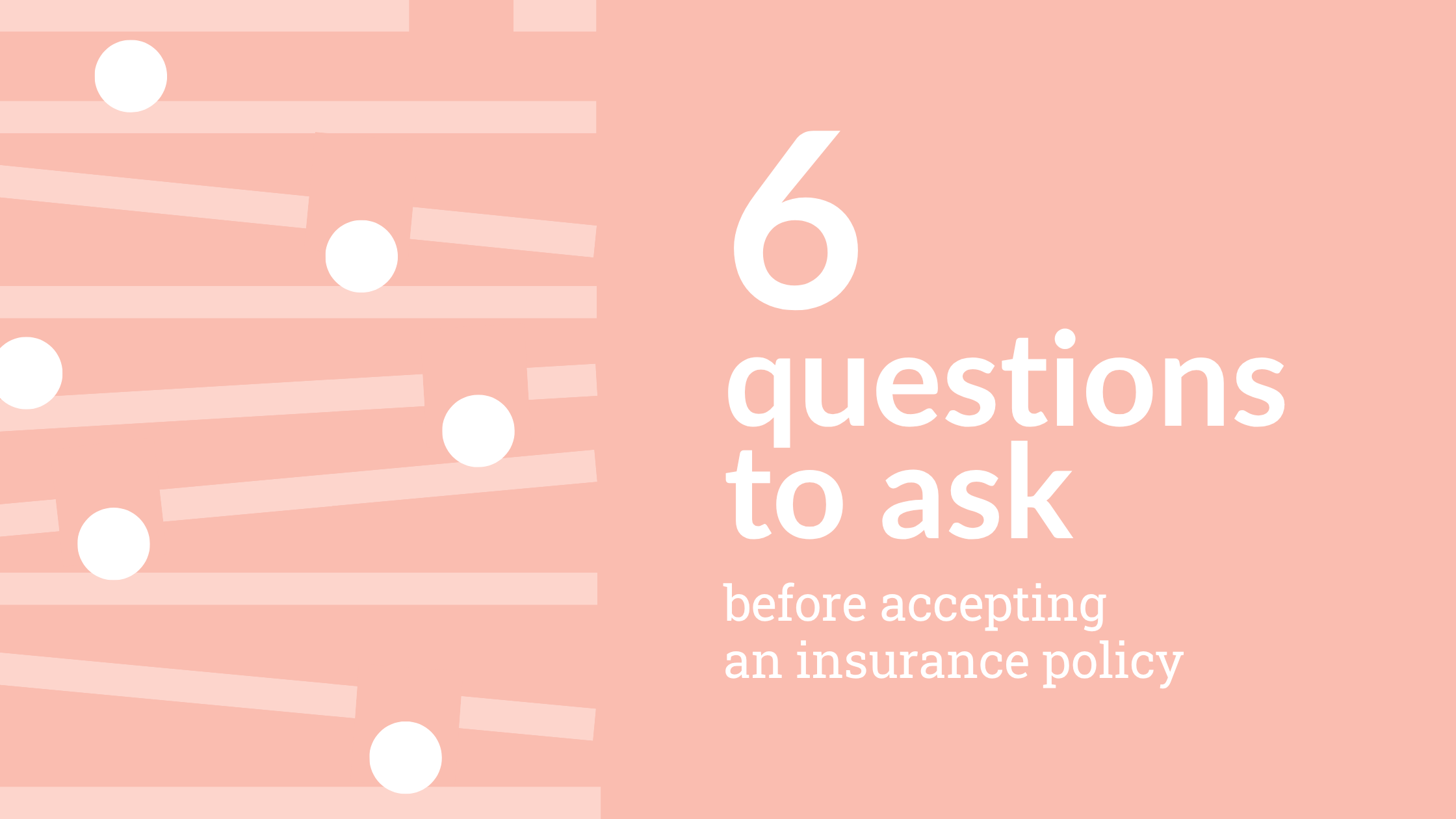
A life insurance policy can give a family peace of mind.
But a policy with red flags is a different story.
These policies create additional stress for grieving families and put your funeral home at risk.
But your priority is serving families, not analyzing insurance policies. As a busy funeral professional, you likely don’t have time to comb through every detail of an insurance policy, much less sit on hold with an insurance company.
The good news?
You don’t have to be an insurance expert to find red flags in insurance policies. You just have to know what to look for.
In this blog, we’ll walk you through 6 questions you should ask yourself before accepting an insurance policy and why each question matters.
1. Is the policy assignable?
If you accept an unassignable policy, your funeral home will likely experience delays, stress, and financial risk. Not to mention, the family you’re serving will have to go through the insurance company in order to receive funding.
So, when you’re evaluating an insurance policy, the first thing you need to know is if the policy is assignable or not.
Check the policy document for any language that states whether the policy is assignable. Some policies will clearly state, “This policy is not assignable,” or “Assignment is only permitted under certain conditions.”
If the policy is unclear, contact the insurance company directly.
That way, you can protect your funeral home’s finances and ensure the family can focus on their loved one’s funeral.
2. Is the policy contestable?
If the policy is less than 2 years old or reinstated less than 2 years before the death occurred, it will likely be considered contestable by the insurance company. That means the insurance company may want a medical review of the loved one, additional documents, and medical records to determine if it will fund the policy.
Which leaves you with more to do just to get funding for the policy.
A contestable policy typically results in a lengthy process, which can result in waiting months for payment or even a rejection from the insurance company. To be safe, double-check the life of the policy.
3. Is the policy lapsed or paid to date?
An insurance policy that’s paid to date is easier to process.
However, if the policy is lapsed, it comes with a few risks. Depending on the insurance company, a lapsed policy either has no value or decreased value. And most insurance companies won’t fund a no-value policy.
To protect your funeral home’s bottom line and the families you serve, make sure the policy is current and paid to date.
4. Is there a minor or an estate involved?
Accepting an insurance policy that lists a minor or an estate as the beneficiary will likely result in delayed funding.
Most insurance companies won’t accept an assignment if the beneficiary is a minor. And if the beneficiary is an estate, most insurance companies require an affidavit, paperwork, or a signed policy and death claim forms by the estate’s executor. All of which causes additional stress for the family (and for you).
So, to best serve families and protect your business, review the beneficiary information before taking on a policy.
5. Does the policy exclude suicide?
When evaluating an insurance assignment for a presumed suicide, it’s crucial to approach the situation sensitively.
Some policies offer coverage for suicide, ensuring smooth funding. However, the funding process may be impacted if the policy excludes suicide. In cases where suicide is assumed, the insurance company may request an autopsy or toxicology report.
Before accepting an assignment involving a suicidal death, contact the insurance company to verify the policy’s clause on suicide. That way, you’ll have all the correct information to make the right decision for your business.
6. Are there any loans or liens against the policy?
A policy with a loan or lien against it will still be funded – but not for the total amount.
A person who borrows against their insurance policy lowers the overall value of the policy. That means that upon their death, their family might believe the policy is worth a certain amount, but it could be far less and may not cover the cost of the funeral.
Ask the family if the policy has any loans or liens against it so you can know straight away that the policy will be funded for less than the expected amount.
Your business is worth asking these important questions.
Taking a few extra minutes to investigate risky policies can save your funeral home from headaches and protect families from extra suffering.
But as a busy funeral professional, you don’t always have time to evaluate every insurance policy. So, let us catch the red flags for you.
With Claimcheck, you’ll have a team of insurance experts available whenever you need. You’ll also enjoy benefits like:
- 100% Risk-Free Verification – Submit claims with confidence as we analyze and verify each policy. You’ll never have to worry about taking on a bad policy again.
- Quick and Easy Funding – Rest easy knowing your payment is on the way. More than half of all assignments we receive are funded within 24 hours.
- And more!
Fill out the form below to learn more about how we can protect you and your families.

